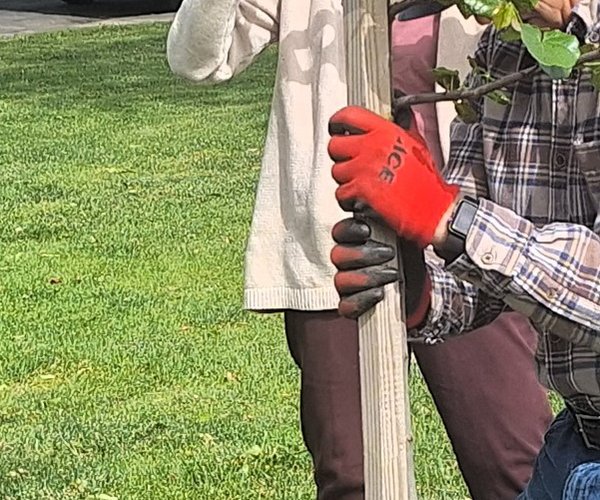Back in 1992 there was no hope for homeless families in Manteca.
They either lived in cars on the street, pitched tents at Caswell State Park for no longer than 30 days at a time, stayed in motels that rented by the week, bounced between couches and garages of friends, or were able to get help at a shelter out of town.
That all changed 25 years ago when a coalition of churches founded HOPE Family Shelters.
The non-profit will be celebrating 25 Years of HOPE during an anniversary fundraising dinner on Saturday, July 14, at the MRPS Hall in downtown Manteca. The evening starts at 5 p.m. Tickets are $75.
For more information on how you can help call Executive Director Cecily Ballungay at (209) 824-0658 or go to hopefamilyshekters.org.
HOPE operates three shelters — one serves family, another is for mothers with children, and the other is transitional housing. They are drug-free meaning clients must be clean and stay that way during their stay. HOPE also established HELP Outreach in partnership with the Manteca Homeless Task Force to address issues with those living on the street and work
A family’s stay in a HOPE shelter is typically two months. During that time adults and children have access to counseling services, classes is in budgeting and financing, and — if they are not employed — are coached on how to seek employment.
Between 2014 and 2017, HOPE served 948 individuals in 275 families. Of those, 35 percent found permanent housing, less than 9 percent returned to homeless, and the rest either moved in with family members or some other shared arrangement. Typically with shelters in California the success rate at finding permanent housing is 15 percent.
The success rate for 2017 for HOPE clients finding permanent housing hit 44 percent. Even more impressive for the last year was the fact 100 percent of the clients that did not have a job when they started their two-month stay in the shelter were employed before they left the program.
Businesses, churches, service clubs, and individuals donate $320,000 a year to keep the doors of HOPE shelters open. The rest of the non-profit’s $360,000 annual budget — $40,000 — comes from government sources.
To contact Dennis Wyatt, email dwyatt@mantecabulletin.com





